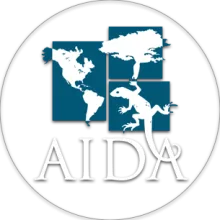By World Wetland Network
The non-government NGO sector and civil society greatly appreciates this opportunity to address the 12th Conference of Contracting Parties to the Ramsar Convention on wetlands. We have worked together to prepare this statement through the World Wetland Network, an international alliance of NGOs and civil society organizations, many of whom are focused on one or two wetlands in their local area. These organizations reflect their local cultures and communities and are a considerable force for Ramsar wetland conservation.
All present understand the values of wetlands for life on earth. For NGOs and Civil Society groups, these values are very close to our heart, our life’s work. Sometimes even a matter of life and death.
Wetlands supply us with fresh, clean water. They are essential to food security, providing water for irrigation, rice and fish to sustain us. Wetlands store carbon to mitigate climate change and reduce the impacts of disaster risk by slowing and storing floodwater. They support a wealth of plants and wildlife that make our world a richer place. Wetlands are our home, sustaining us spiritually and culturally.
And we in turn are their custodians. Our stewardship ethic inspires us to work on wetland conservation through many activities: on-ground work, research, monitoring, advocacy, education and community engagement.
We now know that our earth has suffered the destruction of 64% of all wetlands at the hands of human development since 1900. NGOs and Civil Society fully support the Ramsar goal to slow, stop and reverse the trend in wetlands loss and degradation world-wide.
In 2014, World Wetland Network conducted a global survey of NGOs to explore their relationship with the delivery of Ramsar wetland conservation goals. 190 individuals responded from 52 counties, giving us the chance to hear the collective voice of local people.
The survey findings are offered now so that Ramsar Parties can successfully deploy both government and non-government resources to ensure the greatest gain for wetlands, wildlife and people.
- The survey overwhelmingly showed that NGOs are committed to Ramsar and want to do more.
- Supporting and enabling volunteers and NGO staff to be engaged in wetland conservation requires resources, but small inputs create big outcomes, leading to better programs for Ramsar sites.
- Ramsar’s Communication, Education, Participation and Awareness activities require greater advocacy, technical and financial support. Many NGOs have skills that could be more actively used in this process.
- NGOs are concerned that some governments appear to discourage strategic Ramsar site designations. A means for civil society to highlight potential nominations would be welcomed.
- Some governments do not actively use Ramsar as a tool to protect wetlands. NGOs reported government inactivity, reduced financial resources and reduced involvement of public officials.
- NGOs are concerned about inaccurate reporting in the national Ramsar reports. Contracting parties should take responsibility to ensure accurate reporting of wetland status to inform effective decision-making.
- More needs to be done to enforce site protection.
Based on the broad findings of our survey, the World Wetland Network offers the following recommendations for Ramsar consideration:
a) Recognize that NGOs often create a longer-term and more continuous link for Ramsar sites than Government Representatives.
b) Develop more structured guidance for Ramsar Parties, and National Focal Points, on how to engage civil society.
c) Explore options to include more NGOs and civil society organisations in the decision-making process for Ramsar at international, regional and country levels.
d) Create avenues for NGO and civil society input into reporting on the state of wetlands, Ramsar site nominations and the Montreux Record.
e) Prioritize funding and support for NGOs and civil society organisations that are working on Ramsar listed wetlands.
Finally, full and effective collaboration between civil society and contracting parties is critical to achieve wetland conservation at the local level. With regard to the draft resolutions for Ramsar COP12, NGOs are calling for stronger linkages to the NGO and civil society sector in DR2 – the Strategic Plan and DR 9, the CEPA program.
We trust that this Ramsar COP12 meeting will help civil society, corporate sector and government partners to work together to protect, restore and promote wetlands.
AIDA Staff

Founded in 1998, AIDA is a nonprofit environmental law organization that works across international borders to defend threatened ecosystems and the human communities that depend on them.
